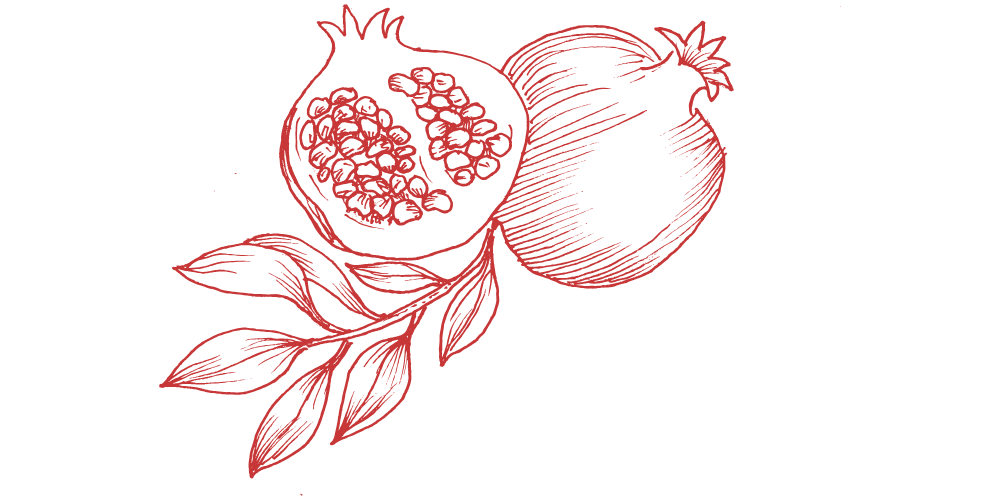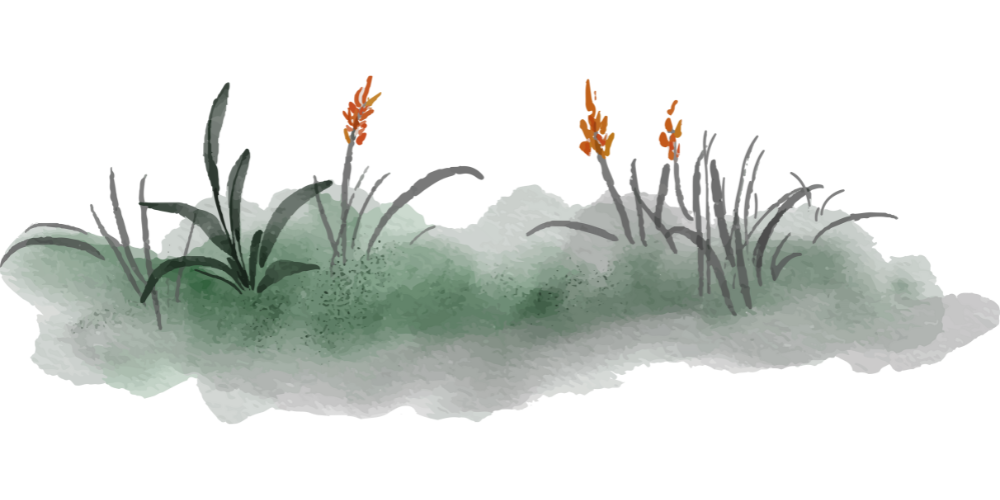I love to see pomegranates showing up for the season. Those beautiful little juicy seeds are like holiday jewels, instantly elevating any salad, slaw, or side dish. And the tangy crunch they can add to a breakfast yogurt or oatmeal is delightful. Yes, getting the seeds out of the whole fruit takes a bit of slowing down, which to me only adds to the allure. Pomegranates possess a certain mystique, not only because they’re exotic and delicious, but because they are steeped in a story about a Lady Farmer from long ago.
Here it is.
Civilizations long before us told stories to explain what they observed in nature. The ancient Greeks explained the coming of winter through a story about Demeter, the Goddess of the earth and growing things— the original Lady Farmer!
All of humanity was dependent on Demeter for survival. She had the power to make things grow, and presided over the crops that fed the world, so her pleasure or displeasure determined the experience of abundance or famine.
Demeter had a daughter, Persephone, who was her mother’s joy. One day while she was out gathering flowers in the meadow, the ground suddenly opened up and Hades, the God of the Underworld, appeared in a horse drawn carriage to capture Persephone and carry her off to his domain of darkness.
Demeter heard her cry and began a desperate search for her missing daughter. She roamed the earth in grief and desperation, creating a blight on the land and refusing to allow anything to grow. The longer she wandered without finding her daughter, the longer the ground remained barren.
Zeus, the King of the Gods, realized that the whole of humankind was in danger of extinction. Knowing that Hades would not let Persephone return to her mother on his own, he intervened, insisting that he release her for the greater good.
Hades was forced to relent, but only through a compromise. He claimed Persephone was his bride, and while with him in the underworld she had eaten six pomegranate seeds. He would let her go back to her mother, but she must return to him for six months of the year, one month for each of the seeds she had consumed.
So it was agreed.
When Persephone left the underworld to be reunited with Demeter, her mother’s delight brought fertility back to the land, allowing things to grow and life on earth to flourish for six months.
Yet as the time grew near for her descent to the land of Hades, everything began to die back, and while she was away in the darkness the earth lay fallow.
This is how the ancient Greeks depicted the changing of the seasons. Persephone’s return to the earth’s surface heralded the arrival of spring and the promise of an abundant season of growth. Her annual descent into the underworld was winter, a time of darkness and dormancy.
Despite the terrifying aspects of this story, namely the suffering of the women at the hands of a male predator, the role of Demeter as the decider of feast or famine is key. Yes, the entire culture recognized a woman as the source of human sustenance.
This is not to say that ancient Greece was in any way a feminist society. Women were often depicted as objects of pursuit and subjugation. King Zeus was temperamental and capricious, and played fast and loose with his desires for power and dominance, often creating widespread chaos in the heavenly realm as well as the human world. He set the example for a whole cast of lesser gods (and goddesses for that matter), few of whom could claim good behavior in their list of positive attributes.
Sound familiar?
And yet, despite the mentality of male conquest and coercion in the narratives of Greek mythology, it remained that the survival of the human race was dependent on a woman, the mother figure—and she must be appeased.
I find myself pondering this as we enter these darker days of the year, and perhaps our history as well. Right now the nights are long and getting longer, and simultaneously, we are entering a time in our collective experience when we can’t see what’s ahead. But I find hope in both nature and history, the ebb and flow of dark and light, times of chaos and periods of relative peace and stability.
For those of you so inclined, I will leave you to reflect on the parallels.
In the meantime, there are the pomegranates to bring us delight through the holidays and winter, and assurance that though the days to come might be dark and cold, spring is on the other side.
~Mary
CATCH UP ON THE GOOD DIRT!
What are more sustainable death practices that we can can consider as alternatives to the expensive and consumptive services offered in the modern funeral industry? CEO of Endswell Cremation Hunter Beattie is our guest, here to discuss the green burial movement, the problems with our current death rituals and practices and how the process of aquamation offered by his company is another choice over cremation or burial. Hunter shares his honest emotional personal journey with death, the founding of Endswell and the philosophy behind providing thoughtful, compassionate end-of-life services.
In this episode, Mary & Emma explore sustainability in the spirits industry with Harrison Holditch of Half Shell Vodka. At just 33 years old, Harrison has pioneered innovative sustainable practices in producing vodka, including using recycled materials and local partnerships. Among Half Shell Vodka's noteworthy achievements is its revolutionary 100% recyclable cardboard bottle made from 94% recycled materials. The discussion covers Harrison's journey, the company’s sustainable practices, and innovations like their unique filtration system using oyster shells and coconut carbon. The episode also highlights the challenges and benefits of adopting sustainable methods in distilling.
In this conversation, Casey and Brooke Oberg from Detroit Mulch Company share their mission transforming tree waste into mulch in the urban landscape of Detroit. They discuss their backgrounds, how they came to the project, various types of mulch, the significance of topsoil and the role of composting in community engagement. The conversation highlights the community impact of their work repurposing organic materials into beneficial mulch, a product that provides environmental sustainability and circularity into the local economy. The discussion also touches on the concept of slow living and how it relates to their work, culminating in a reflection on the meaning of good dirt and its impact on the environment and local communities.
Zandra Zuraw, founder of Slow Style Home, joins us to share her insights on interior design. Slow Style Home is an interior design coaching platform for people looking to create a beautiful, meaningful home without breaking the bank, hiring a designer, or hurting the planet. Zandra discusses her step-by-step framework, the importance of a vision for your space, and offers tips for decluttering and balancing aesthetics with functionality. Zandra also touches on the broader concept of slow living. She encourages everyone to find a personal and meaningful approach to home decoration and stresses the emotional satisfaction that comes from using and transforming what we already have. She's currently writing a book about her Slow Style approach to design, to be released in Spring 2025 .and is also the host of the popular podcast, Slow Style Home.
Tune in to our Slow Friday conversation on The Good Dirt this week! It’ll be out tomorrow, 11/29.
Thank you SO MUCH for supporting us here at Lady Farmer. Wishing you a weekend of wonderful slowness, whatever that means to you.
Mary & Emma












I so appreciate your words and drawing a parallel to our current times. Happy holidays to you and your family!